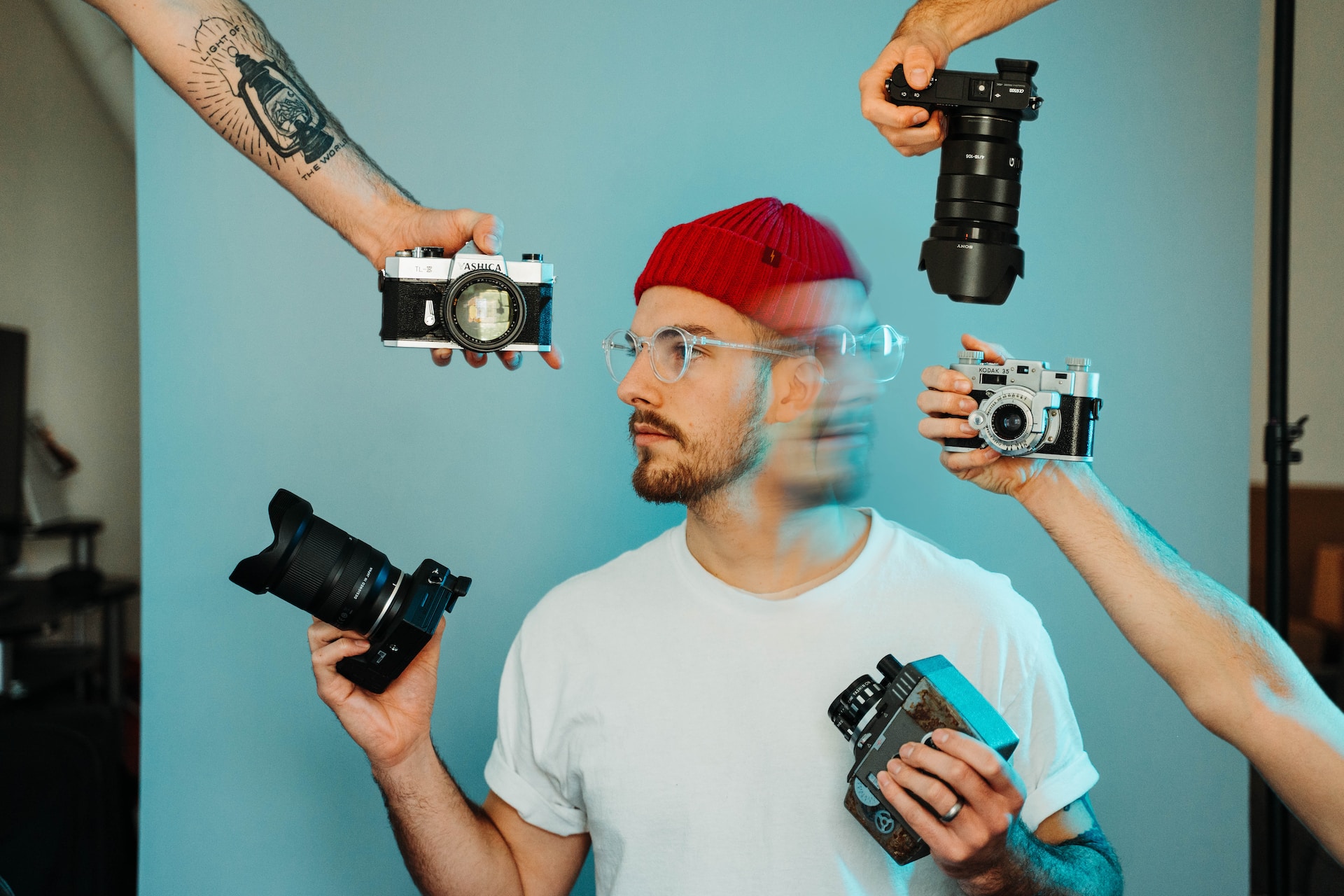Unveiling the Origins: The First Camera and Its Inventor
Posted on 18 Jul, 2023

Photography has become an integral part of our lives, allowing us to capture and preserve precious moments for eternity. But have you ever wondered where it all began? The fascinating journey of photography traces back to the invention of the first camera. In this blog we are delving into the origins of photography and exploring the remarkable story behind the creation of the first camera.
The invention of the first camera and its significance
The birth of the camera can be attributed to a brilliant inventor named Joseph Nicéphore Niépce. In the early 19th century, Niépce successfully captured the first permanent photograph using a device he called the "heliograph". This groundbreaking achievement, accomplished in 1826, marked the dawn of a new era in human history.
Niépce's invention was a major breakthrough as it allowed images to be captured and preserved for future generations. The heliograph utilised a process known as "heliography", which involved exposing a light-sensitive material to create an image. Although the process was time-consuming and produced low-resolution images, it laid the foundation for the development of photography as we know it today.
The evolution of cameras: from the early days to modern technology
Over the years, cameras have undergone significant transformations, evolving from bulky and complicated devices to sleek and user-friendly tools. The journey of camera evolution can be divided into several key stages, each contributing to the advancements we enjoy today.
Camera Obscura: The First Step
One of the earliest precursors to the modern camera was the camera obscura. Dating back to ancient times, this simple device used a small hole in a darkened room to project an inverted image onto a surface. While it could not capture permanent images, the camera obscura laid the groundwork for understanding light and optics, paving the way for future innovations.
Daguerreotypes: Capturing the World
In the early 19th century, Louis-Jacques-Mandé Daguerre introduced the daguerreotype process, which revolutionised photography. Daguerreotypes involved exposing a silver-plated copper sheet to light, creating a direct positive image. This process produced highly detailed and sharp images, captivating the world with its ability to preserve moments in exquisite detail.
Polaroid Cameras and Instant Photos: A Revolution in Photography
The 20th century witnessed another significant milestone in the history of photography with the invention of the Polaroid camera by Edwin Land. The Polaroid camera allowed users to instantly develop photographs, eliminating the need for complex darkroom processes. This breakthrough democratised photography, making it accessible and enjoyable for people of all ages and skill levels.
The Rise of Digital Cameras: The Shift from Film to Pixels
The advent of digital technology in the late 20th century brought about a monumental shift in the world of photography. Digital cameras replaced traditional film with digital image sensors, allowing for instant image capture and storage. This breakthrough not only enhanced image quality but also revolutionised the way we share and edit photographs.
Camera Phones: The Democratisation of Photography
The introduction of camera phones marked yet another milestone in the evolution of photography. Suddenly, everyone had a camera in their pocket, enabling them to capture and share moments anytime, anywhere. The convenience and accessibility of camera phones transformed photography into a ubiquitous and social activity, empowering individuals to become storytellers through images.
The future of photography: Trends and advancements
As technology continues to evolve, so does the world of photography. The future holds exciting possibilities for photographers and enthusiasts alike. Here are a few trends and advancements that are shaping the future of photography:
Artificial Intelligence and Machine Learning
AI and machine learning algorithms are revolutionising photography by automating various processes and enhancing image quality. Smart cameras can now recognise scenes, adjust settings accordingly, and even apply real-time image enhancements.
Virtual and Augmented Reality
Virtual and augmented reality technologies are merging with photography to create immersive visual experiences. From 360-degree photos to augmented reality filters, these advancements are transforming the way we interact with images.
Computational Photography
Computational photography combines hardware and software to capture and process images in new and innovative ways. Techniques such as HDR (High Dynamic Range), multi-frame image stacking, and night mode are examples of how computational photography is pushing the boundaries of what is possible in photography.
Drone Photography
The rise of drones has opened up new perspectives and possibilities for aerial photography. With advancements in drone technology and camera capabilities, photographers can now capture stunning aerial shots with ease.
The enduring impact of photography
The invention of the first camera forever changed the way we see and document the world. From the heliograph to modern digital cameras and camera phones, photography has evolved and become an integral part of our lives. It has the power to evoke emotions, preserve memories, and communicate stories.
As we look to the future, the possibilities in the world of photography are endless. With advancements in technology and the democratisation of photography, more people than ever can express their creativity through images. So, let's all grab our cameras (whatever method we favour), embrace the journey and let our unique perspective shape the enduring legacy of photography.
Back to blogPosted in: News
